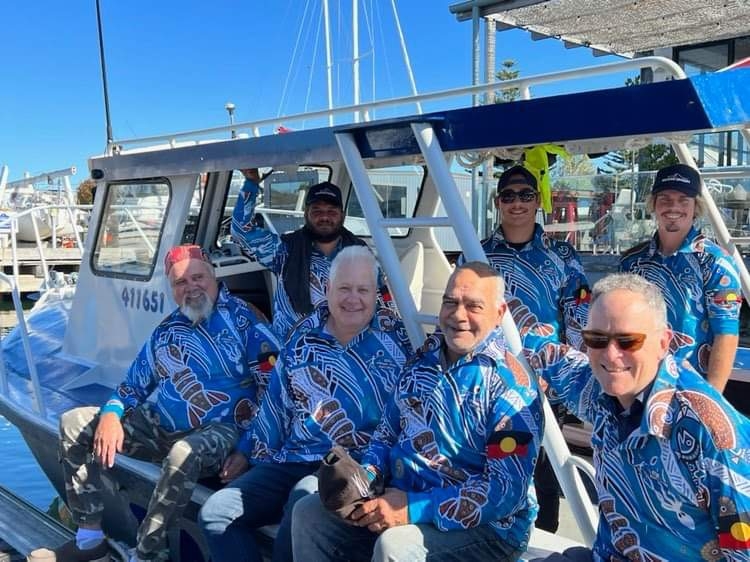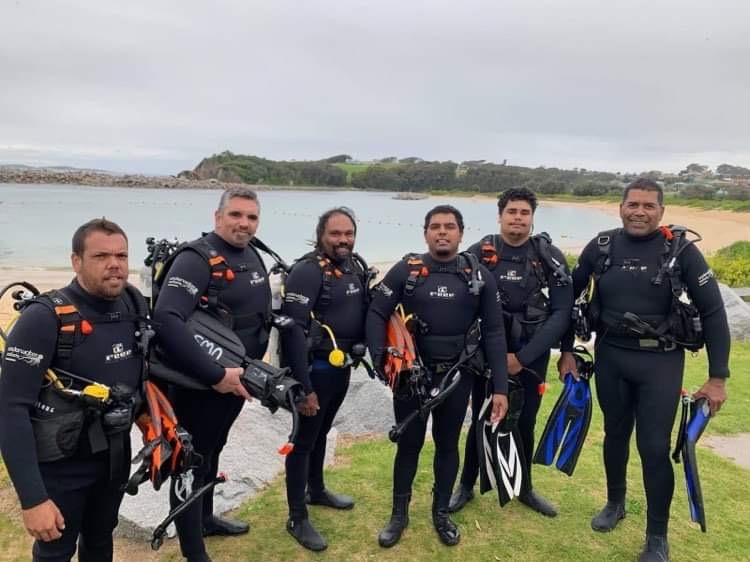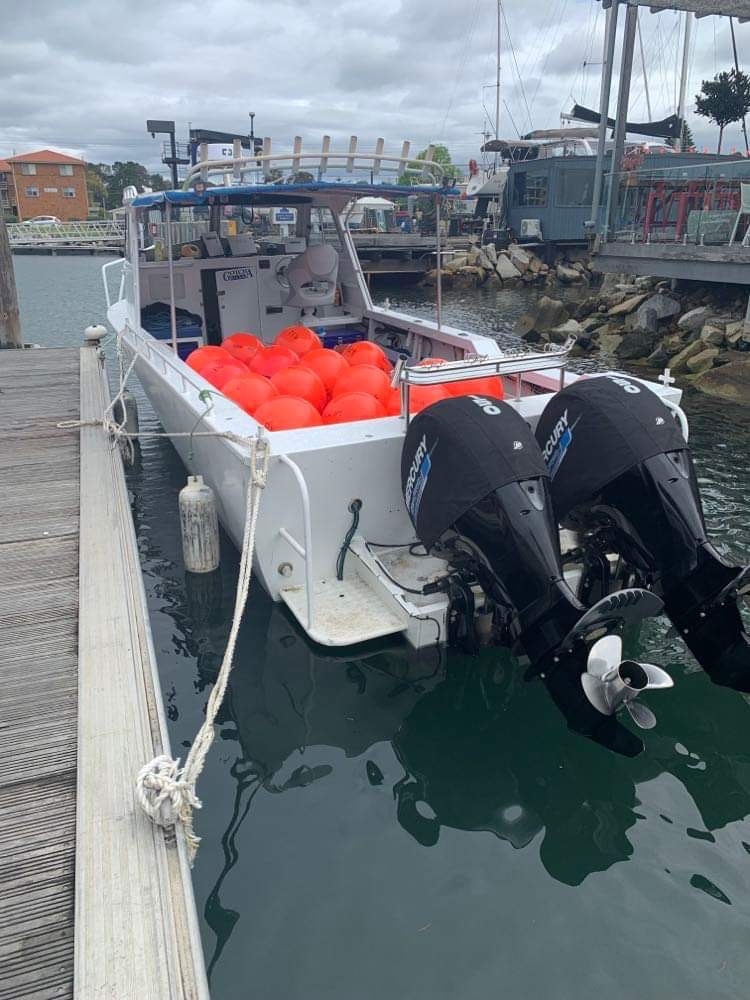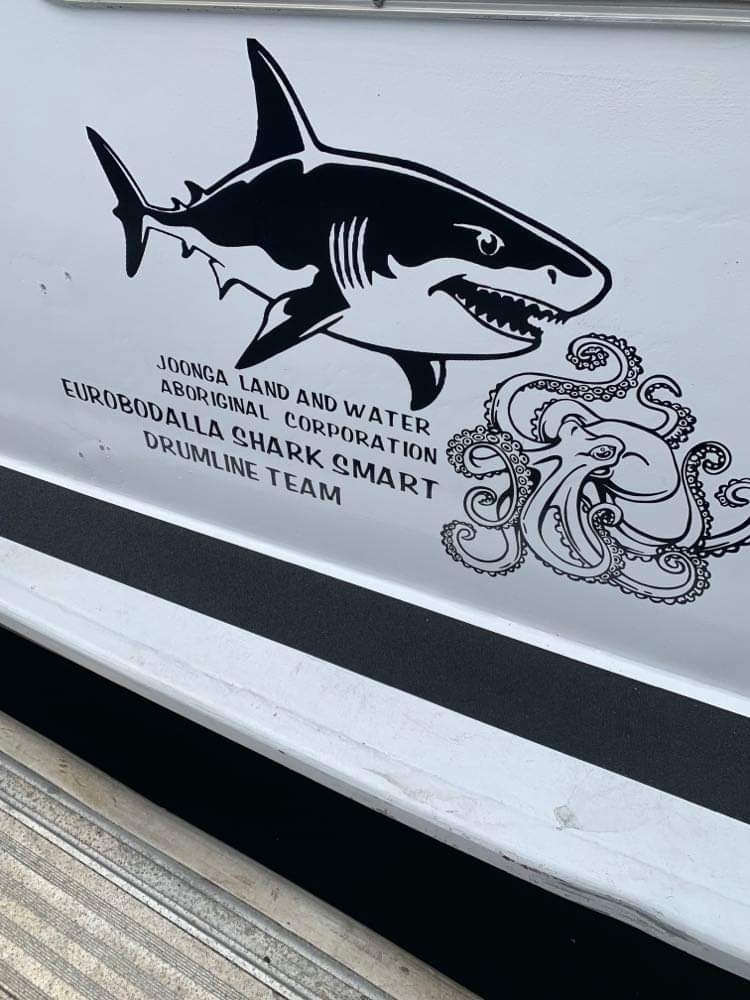Creating sustainable employment on sea Country
From grassroots beginnings as a fishing advocacy group, Joonga Land and Water Aboriginal Corporation has become a thriving organisation. It’s providing local jobs in land and sea management on projects that care for Country on the NSW south coast.
Walbunja man Wally Stewart and a board of Yuin Traditional Owners are taking opportunities for Joonga to go even further. But handling the fast and large growth has been a challenge. Strong relationships and constant communication have been key to keeping up with the speed of expansion and project delivery.
From making ripples to managing waves
Through increasing its capabilities, Joonga (which means ‘octopus’ in Walbunja language) has its sights firmly set on a sustainable economy for saltwater people.
‘Being Traditional Owners we’re passionate about land management and looking after our waters. That was our obligation handed down to us for thousands of years,’ Wally says.
‘Mob kept saying to us, “All those places my grandfather went to fish – they’re all gone.”

‘We’d been fighting for traditional fishing rights for decades. We wanted to enhance our people’s rights and move our people forward. So, we came up with setting up a corporation to lobby government for the resources and training we needed.
‘That took a lot of convincing to our own mob. We never gave up on our mob – we are still fighting for our rights. We said we have to talk about fixing up our water again. The work we do – we’re focusing on sustainable solutions and benefits for the community and looking at other training avenues and what other jobs we can create.
‘We had to move from a lobby group to a corporation to build assets, training, apply for grants and have a corporation behind it to maintain it.’
Testing the waters
Things moved quickly once the corporation started seeking opportunities, but it was dormant for the first 2 years. ‘It was really hard getting it up and running – we had no money,’ Wally explains.
‘Oxfam had seen the progress we were making with the fishing rights and they advised us to move to a corporation. Oxfam sponsored me for 3 months to stop my work and put the effort into Joonga.
‘We needed to get people trained, employed, insured and accredited to do the work government needed, so that’s how the corporation builds.’
The corporation now has 7 Aboriginal scientific divers, 1 full-time admin staff and a part-time admin person to assist. Getting to this point has taken strong relationships and constant communication with government and between the board members and staff.

‘We always build an admin fee into our project fee so that we can cover the cost of extra admin staff as we grow. We’ve built good relationships with the NSW Government. We always hit our milestones. And we’re happy to do the promotion for them too, to show the training programs and the projects we’re a part of,’ says Wally.
A brush with boiling point
Joonga had some early issues with accounting and bookkeeping, requiring urgent action from the board to dismiss the person in the role. If he could pass on one piece of advice to other corporations, Wally says it’s that ‘having a good bookkeeper is key. And someone you can lean on for legal advice. They’re 2 things you need in place from early on.’
Joonga now has an experienced and reliable accountant who keeps the books through well managed accounting software. He also says the corporation is doing well in times of growth because of a strong board that talks constantly.
‘Communication is important between the board. There’s only 5 people on the board – we kept it small because we know there can be a lot of politics in organisations. We’ve also closed our membership down until we’ve built up employment.
‘We’re looking at some governance training this year as well to build our skills in that area.’
Diving into sustainable opportunities
Joonga actively looks for ways to grow and help fulfil its goal of protecting sea Country. A long-term, large contract opportunity came with a tender for a SMART drumline trial in the Eurobodalla. The job involves tagging and collecting data on sharks.
When Joonga won the tender there was just one problem: they needed a boat – a very specific one. ‘The boat had to be at least 8 metres and no bigger than 10 metres and had to have twin motors, capable of doing 25 knots. We had to have a crew, a backup crew, skipper, a backup skipper,’ Wally says.

To hire one cost $880 per day. The solution was to look for grant opportunities to build the board’s ability to employ more people and take on the responsibility.
‘This contract created 7 jobs – I needed the boat straight away,’ Wally says. ‘I worked with a friend of the corporation who has valuable business knowledge to write a business case showing our turnover and employment. We put it to the NSW Government and were awarded a grant under the NSWALC Aboriginal Fishing Trust Fund.
‘Then we needed a backup boat so we put in and won another grant application with Aboriginal Affairs NSW.
‘That contract’s changed people’s lives. Our mob want to work around water – that’s who they are. It’s their way of life.’

Two years into the contract and Joonga has not only renewed for the next 3, but the NSW Government has funded the team to train members of other crews on the coast. The young people Joonga employs are learning more on Country while continuing to practice their traditional rights. They have a strong connection to Country and a strong purpose.
‘Our mob know how to catch and swim with fish and sharks, but our young people are learning the science of it,’ Wally says.
‘We’ve got fishermen up and down the coast who have been fishing commercially for 6 or 7 generations. It’s still one of the most environmentally friendly fishing practices in the world. The only thing that has changed in hundreds of years is that they drive four-wheel-drives off and on the beaches.’
Joonga’s proud to be in a position where it can sustain its current projects and the confidence to keep growing as opportunities emerge.
‘It gives us strength knowing that what we talked about, and stuck to our guns about, and that we want to be a part and say in what’s our job anyway,’ says Wally. ‘Our agenda is – if we’re going to do something, make sure it’s sustainable and make sure it creates employment.’